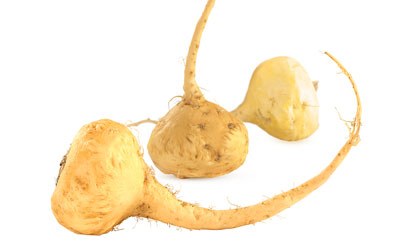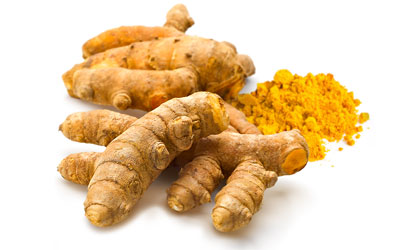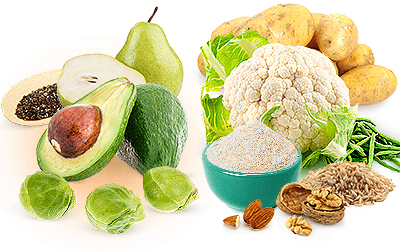Stress has become an unavoidable aspect of our lives. Its effects can take a toll on both our physical and mental well-being, prompting many to seek natural remedies for relief. In this quest, adaptogens have emerged as potent allies. These ancient botanicals, long revered in traditional medicine and now supported by modern science, offer a unique way to help the body adapt to stress and promote resilience. Read on to explore the fascinating world of adaptogens, including what they are, how they work, and how they can benefit your health.
What are Adaptogens?
Adaptogens are a class of herbs and mushrooms that help the body adapt to stress by supporting the adrenal glands, regulating the production of stress hormones like cortisol, and promoting homeostasis.
They can be taken in a wide variety of ways, from nutritional powders and capsules to herbal infusions and tinctures.
For an herb to be considered an adaptogen, it must possess the following three qualities:
Non-specific action: Adaptogens have a general, non-specific effect on the body, helping it resist a wide range of stressors.
Balancing effect: They help bring the body back into balance or homeostasis, regardless of whether it's overactive or underactive.
Non-toxic: Adaptogens must be safe for long-term use and not produce harmful side effects at normal doses.
Benefits of Adaptogens
While adaptogens have been linked to various health benefits, the scientific world is still catching up to fully comprehend their potential impact.
Adaptogens are believed to exert their stress-protective effects through the hypothalamic-pituitary-adrenal (HPA) axis and the regulation of stress response mediators. The HPA axis is a communication system between three hormone-producing organs essential for the body's stress management and hormonal balance.
Some of the proven ways adaptogens can benefit human health include the following:1,2
Reduce stress and anxiety. Adaptogens help the body cope with stress by reducing the production of stress hormones like cortisol, promoting a sense of calm, and helping reduce anxiety and depression.
Combat fatigue and increase energy. Adaptogens work to combat fatigue by supporting the adrenal glands and optimizing energy production at the cellular level, thus increasing stamina, reducing fatigue, and promoting overall vitality.
Improve cognition. Adaptogenic herbs can improve cognitive function, memory, and focus, making them valuable for maintaining mental clarity and alertness.
Boost immunity. Some adaptogens have immune-modulating effects, helping to strengthen the body's natural defenses against infections and illnesses.
Relieve pain. Certain adaptogens possess analgesic properties and can help alleviate pain associated with conditions like arthritis, headaches, and muscle soreness. They may also reduce inflammation and modulate pain perception.
Most Popular Adaptogens
Among the vast array of adaptogenic herbs studied for their health benefits, several stand out as particularly popular due to their extensive research and widespread use in traditional medicine practices:
Ashwagandha. Known for its stress-reducing and anxiolytic effects, ashwagandha has been extensively studied for its ability to improve mental clarity, reduce cortisol levels, and alleviate anxiety and depression.
Rhodiola. Valued for its energy-boosting effects, rhodiola is a popular adaptogenic herb that helps alleviate fatigue, reduce pain, and relieve depression.
American ginseng. Beneficial for enhancing immunity, relieving inflammation, and pain, American ginseng may also have positive effects on mood regulation.
Holy basil. Revered in Ayurvedic medicine, holy basil helps reduce anxiety, improve focus, and boost immunity.
Astragalus. Studies have shown astragalus may help reduce stress, enhance immune function, and improve vitality.
Maca. Although not a classic adaptogen, maca is considered one due to its stress-reducing and energy-boosting properties, as well as its traditional use in promoting hormonal balance and fertility.
Turmeric. Studies suggest that turmeric may reduce inflammation, support joint health, and improve cognitive function thanks to its anti-inflammatory and antioxidant properties.
Licorice. Studied for its adaptogenic properties, licorice root may help reduce stress, support adrenal function, and has anti-inflammatory and immune-modulating effects.
Adaptogens offer a natural and holistic approach to managing stress and promoting overall well-being. By incorporating these powerful herbs into your daily routine, you can support your body's ability to adapt to life's challenges and thrive in the face of stress. Keep in mind that adaptogenic herbs often produce cumulative benefits over time, so it's essential to take them regularly for maximum effectiveness. It's always a good idea to consult a physician before starting any herbal regimen to ensure adaptogens are suitable for your wellness journey.
Sources
- Chinese Medicine, A preliminary review of studies on adaptogens: comparison of their bioactivity in TCM with that of ginseng-like herbs used worldwide, 2018
- Cleveland Clinic, Adaptogens, 2022
- Michigan State University, Trending – Adaptogen Ingredients, 2021
- Nutrients, Plant Adaptogens – History and Future Perspectives, 2021
- University of California, What are adaptogens and should you be taking them?
Footnotes:
- Cleveland Clinic. (2022). Adaptogens. Retrieved April 23, 2024, from https://my.clevelandclinic.org/health/drugs/22361-adaptogens
- Pharmaceuticals. (2010). Effects of Adaptogens on the Central Nervous System and the Molecular Mechanisms Associated with Their Stress—Protective Activity. Retrieved April 23, 2024, from https://www.ncbi.nlm.nih.gov/pmc/articles/PMC3991026/









